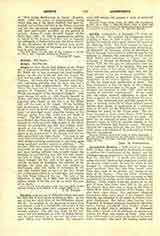
Ascendente Domino
Papal Bull issued by Gregory XIII to confirm the Constitution of the Society of Jesus and the privileges already granted to it

Ascendente Domino, a Bull issued by Gregory XIII, May 24, 1584, in favor of the Society of Jesus, to confirm the Constitution of the Society and the privileges already granted to it by Paul III, Julius III, Paul IV, and Pius V. It recalls and confirms the means which St. Ignatius had prescribed in order that the Society might attain the end for which he had founded it. Candidates have first to make two years’ novitiate; then they take three simple vows. Thus they cease to be novices, and belong to the body of the Society. They are either Scholastics or unformed Temporal Coadjutors, according as they are destined for studies or for domestic duties in the Society. These simple vows are perpetual on the part of those who make them, but on the part of the Society they bind only so long as the General thinks fit to retain as members of the Society those who have t:ken them. The unformed Temporal Coadjutors, after some years, if the General thinks them fit, are admitted to the grade of Formed Temporal Coadjutors. But before they become either Professed or Formed Spiritual Coadjutors, the Scholastics, having completed their studies, must go through a third year’s probation. If Professed, they take a fourth vow of obedience to assume any mission the Pope may enjoin on them. Any, even those with simple vows made at the end of the second year’s novitiate, who leave the Society under any pretext (unless to become Carthusians), without express permission, shall be regarded as apostates, and incur excommunication. The simple vows which they make after their novitiate constitute them religious in the true and proper sense of the word, with the consequent privileges. Thus they enjoy the exemption of regulars; and their simple vows, as solemn vows with other religious, are a diriment impediment to matrimony, that is, a marriage contract attempted by a Jesuit with simple vows, even though he be not a priest, would be null and void.
M. O’RIORDAN

